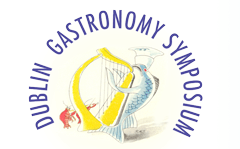Start Date
31-5-2022 3:00 PM
End Date
31-5-2022 3:15 PM
Description
At its heart, empire is about movement with borders ever expanding outwards and tribute ever flowing inwards. For the Inka these aspects were gendered, with the conquest seen as masculine while the care and control of the conquered was feminine. Both forms of power were essential and functioned in tandem. From the feminine powers of provisioning came the bonds of reciprocity. Accepting Inka food and drink was not optional, but through its consumption bonds of reciprocal obligations were forged between the Inka elite and the non-Inka conquered communities. These bonds were made visible through feasting events involving maize beer (chicha) and splendid cuisine. Both the chicha and the foods were produced by the Chosen Women (Aqllakuna) allow us to see dual movements of empire in practice. The first movement is directed inwards towards the heart of the Inka Empire as daughters of conquered elite are taken as tribute to become Aqllakuna. The second movement is that of the Aqllakuna’s labour outward through hospitality and the subsequent reciprocal obligations produced. All feasting foods were created by the Aqllakuna, and thus through each sip of chicha their cultural capital is mobilized, reinforcing obligations that allowed the Empire to flourish.
DOI
https://doi.org/10.21427/6ftq-dg29
The Movement of Women, Beer and Feast Foods in Establishing the Inka Empire
At its heart, empire is about movement with borders ever expanding outwards and tribute ever flowing inwards. For the Inka these aspects were gendered, with the conquest seen as masculine while the care and control of the conquered was feminine. Both forms of power were essential and functioned in tandem. From the feminine powers of provisioning came the bonds of reciprocity. Accepting Inka food and drink was not optional, but through its consumption bonds of reciprocal obligations were forged between the Inka elite and the non-Inka conquered communities. These bonds were made visible through feasting events involving maize beer (chicha) and splendid cuisine. Both the chicha and the foods were produced by the Chosen Women (Aqllakuna) allow us to see dual movements of empire in practice. The first movement is directed inwards towards the heart of the Inka Empire as daughters of conquered elite are taken as tribute to become Aqllakuna. The second movement is that of the Aqllakuna’s labour outward through hospitality and the subsequent reciprocal obligations produced. All feasting foods were created by the Aqllakuna, and thus through each sip of chicha their cultural capital is mobilized, reinforcing obligations that allowed the Empire to flourish.
